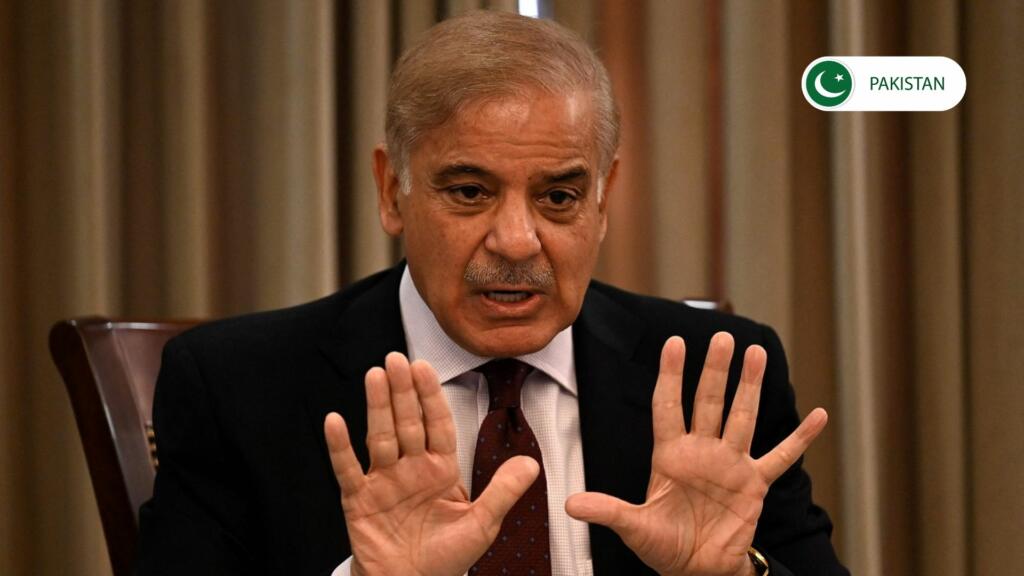In the realm of geopolitics, where tensions often simmer and conflicts persist, the notion of extending a hand in friendship can sometimes seem like a distant dream. Yet, in the case of Pakistan, a nation grappling with historic economic woes, this dream is swiftly becoming a pragmatic reality. As Pakistan’s business leaders urge Prime Minister Shehbaz Sharif to mend ties with India for the sake of economic stability, a new chapter in the region’s narrative may be unfolding—one characterized by cooperation rather than confrontation.
The backdrop against which this call for reconciliation emerges is one of profound economic distress. Pakistan finds itself ensnared in a web of economic challenges, with inflation soaring to unprecedented heights and foreign reserves dwindling to precarious levels. The decision to seek assistance from the International Monetary Fund (IMF) underscores the severity of the situation, highlighting the urgent need for decisive action to steer the nation towards prosperity.
At the heart of this call for action lies the recognition that Pakistan’s economic salvation may lie in fostering better relations with its neighbor to the east—India. The suspension of trade ties between the two nations following India’s revocation of Article 370 in 2019 has exacted a heavy toll on Pakistan’s economy. The loss of India’s Most Favored Nation (MFN) status and the withdrawal from certain trade agreements have exacerbated Pakistan’s economic woes, plunging the nation into a state of financial turmoil.
Arif Habib, a prominent figure in Pakistan’s business community, has emerged as a vocal advocate for reconciliation with India. His call for Prime Minister Shehbaz Sharif to “shake hands” with India resonates not only with the business elite but with a broader sentiment that transcends political divides. Habib’s proposal encapsulates a simple yet profound truth: in an interconnected world, economic prosperity often hinges on diplomatic goodwill and cooperation.
But Habib’s suggestion goes beyond mere economic pragmatism; it embodies a broader ethos of unity and collaboration in navigating Pakistan’s complex political landscape. By humorously suggesting that Prime Minister Sharif extend his hand to Imran Khan, the incarcerated leader of the opposition party, Habib underscores the imperative of transcending political rivalries in pursuit of national interest. It’s a call to set aside differences and work together towards a common goal: the economic revitalization of Pakistan.
Prime Minister Sharif’s response to Habib’s proposal is measured yet indicative of a shifting paradigm. While stopping short of fully embracing the suggestion, Sharif acknowledges the importance of transparency in the privatization process and extends an invitation to foreign companies to participate. His emphasis on moving away from a “rent-seeking mindset” towards a focus on hard work signals a broader commitment to economic reform and revitalization.
As Pakistan charts its course towards economic recovery, the importance of fostering diplomatic overtures with India cannot be overstated. The potential benefits of rekindling trade ties with India are manifold, ranging from increased market access to enhanced investment opportunities. Moreover, improved relations with India could pave the way for regional stability, fostering an environment conducive to economic growth and prosperity.
Yet, the path towards reconciliation is not without its challenges. Decades of political animosity and territorial disputes have cast a long shadow over Indo-Pakistani relations, creating deep-seated mistrust and hostility. Overcoming these barriers will require a concerted effort on both sides, backed by genuine political will and a commitment to dialogue and cooperation.
In the grand scheme of geopolitics, where alliances shift and allegiances wane, the simple act of extending a hand in friendship can sometimes be the most powerful catalyst for change. As Pakistan embarks on a journey towards economic revitalization, it must heed the wisdom of its business leaders and embrace the imperative of reconciliation with India. For in the crucible of cooperation lies the promise of a brighter future—not just for Pakistan and India, but for the entire region.
Also Read: Saudi’s Echoes in Pakistan: Give Kashmir Back to India & I’ll Help You! Is It?
